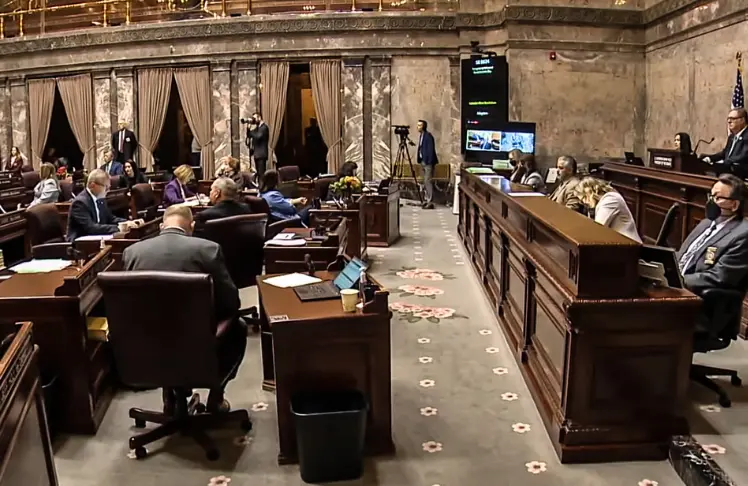
Governor Jay Inslee has signed the final operating budget of his tenure, marking an increase of $2 billion in state spending during the second half of the two-year budget cycle. The additional funds will be allocated towards crucial areas such as education, mental health services, housing, and more.
Reflecting on his three terms as governor, Inslee highlighted the passage of key progressive priorities, including the capital gains tax and the Climate Commitment Act. He also mentioned policies and funding aimed at expanding housing options and improving access to financial aid for college-bound students. In a lighthearted moment, Inslee acknowledged the official state dinosaur, the Suciasaurus rex, and the state sport, pickleball.
The budget signing took place at the new University of Washington Center for Behavioral Health and Learning in Seattle, which received state funding for its construction. Alongside the operating budget, Inslee also signed more than a dozen other bills during the ceremony.
The $2 billion increase in spending is in addition to the $69.8 billion operating budget that was passed by the Legislature last year. This additional funding will be utilized until June 2025 when the state’s budget resets.
Approximately half of the new funds will be allocated for “maintenance level” costs for ongoing government activities. The remaining half will be invested in new policy initiatives. In addition to the operating budget, Governor Inslee also signed a supplemental capital budget to cover construction costs statewide. The supplemental transportation budget was signed the day before.
The following are some areas where significant portions of the additional funds will be allocated:
1. Education: The budget increase will provide additional resources to enhance educational programs and support for students across the state.
2. Mental Health Services: A significant portion of the funds will be dedicated to improving mental health services, including increasing access and expanding treatment options.
3. Housing: Addressing the ongoing housing crisis, a substantial investment will be made to develop affordable housing and assist individuals and families in securing stable housing.
4. Infrastructure: The budget boost will contribute to infrastructure development, including transportation projects and improvements to enhance connectivity within the state.



